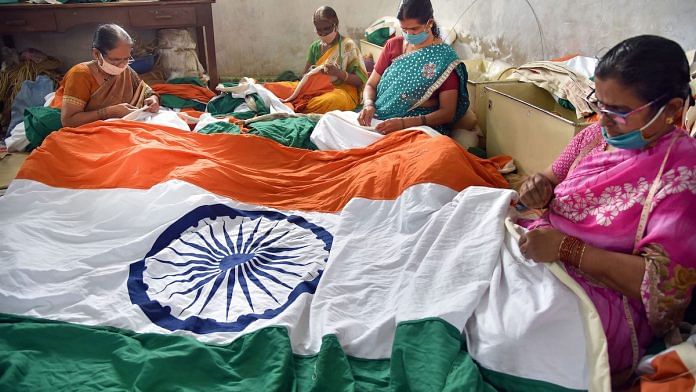
Thank you dear subscribers, we are overwhelmed with your response.
Your Turn is a unique section from ThePrint featuring points of view from its subscribers. If you are a subscriber, have a point of view, please send it to us. If not, do subscribe here: https://theprint.in/
The real working hands in the progress and development of a Nation are its people. The Governments are only enablers and politics determines who lays down policies. This ecosystem in a Nation has to function in unison. It may well be prudent to examine India’s position in this ecosystem.
An ideal Government is one which enables the private sector to do the right things. Policies of the Government should enable autonomous institutions set the rules under which citizens and the private sector operate. Governments should not have a direct say in business operations or its conduct. India is evolving albeit at a slow pace. One of the reasons for slow progress in India is that the it has become necessary for the State to play a dominant role in development in India to exploit its potential for rapid growth, which coming late to development provides.
But, more than anything, the social capital, such as skill enabling and higher education and social norms, like trust, determines how fast one can grow. India over the decades since Independence, unfortunately, was unable to develop a homogenous and efficient social capital.
To become a world leader, we need world class institutions for higher education in the country. After independence India established great institutes for higher education, such as Indian Institute of Science, IITs, IIMs etc. But the graduates from these institutions had few opportunities for employment, in India, in an industrial environment predominantly functioning in the public sector. They sought a future in foreign lands laying to waste what little effort the Nation had put in educating them. This also stymied continued efforts to bolster and establish a productive pan India higher education system for the majority.
India for some reasons, did not encourage the private sector to develop and establish defence manufacturing units making India India a laggard in manufacturing and related technologies. In the fields of research and development we went wrong in creating publicly funded research in autonomous public sector laboratories rather than in universities where teaching and research go hand in hand. This forced the publicly funded Research and Development to pursue projects, in pursuit of funds, rather than technologies. For instance, the DRDO predominantly pursued defence projects to make products for the Defence forces rather than explore technologies. To illustrate, while we pursued making guns and aircrafts, we did precious little research in metallurgy forcing us to import most of the technologies for military hardware manufacturing.
There is also a major trust deficit among the various “pillars” of democracy and also between public institutions and the people. This is a long neglected impediment to growth. This sector has forever been swamped by nepotism, favouritism and corruption. As a result, groups with low levels of socioeconomic status tend to be negatively evaluated while strengthening the ideology of the elite who enjoy higher wealth and better education. The notion that education alone is a universal social problem solver may increase this risk. This anomaly in the society prompts more government controls reigning in the pace of development. The pace of development will be determined by how soon these controls are eased.
Social capital can give maximum returns only in a homogenous culture. The government through its policies and more importantly the society invest in this capital. Religions, especially the Abrahamic religions which spread fast around the world, helped to develop a trust between strangers even in the wake of destruction caused in its spread. Today, in a globalized environment with open communication systems and detailed norms of trade, religion is not the predominant factor in developing trust.Religion, now, is the least important contributor to social capital; infact religion erodes social capital.
There is a fault line in this ecosystem, in a democracy. The polemic of politics.; in a diverse culture, as in India, politicians appeal to emotions for votes. Narrow managerial technical talk, shouting matches, frustrating public discourses, echoed by media aware of TRP and earnings are passed off as political arguments while policies are decided out of public view. This is a dangerous situation. While culture contributes in defining the social capital, religion, actually, plays no role in a Nation’s progress. Religion is exploited by the “Religious leaders” to control society and by the politicians in a democracy for votes. Religions are separated only by methods. Finding commonality in the methods in religions, as they are really unimportant, will make for a good investment in the social capital, especially in the Indian context.
Tailpiece: The prevalent acceptable prejudice is the familiar notion that the elites are morally more enlightened than the others is a misplaced notion. A quality social capital is the interplay of policies and local culture. Market mechanisms are the primary instruments for achieving public good. Beliefs and blind faith destroy societies. Policies and actions conforming to local culture build Nations.
These pieces are being published as they have been received – they have not been edited/fact-checked by ThePrint.

COMMENTS